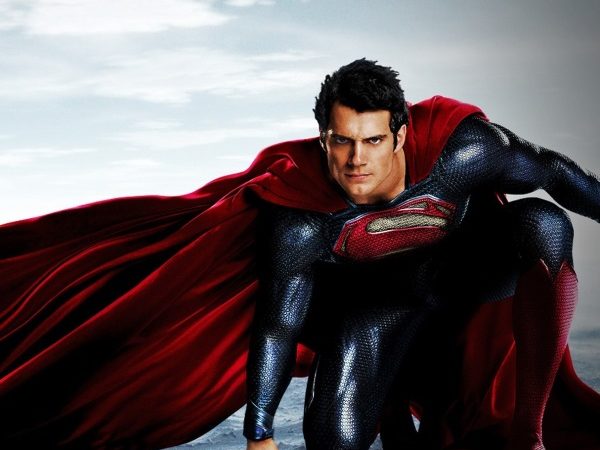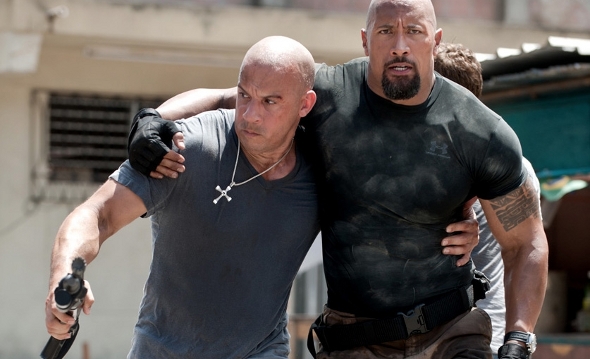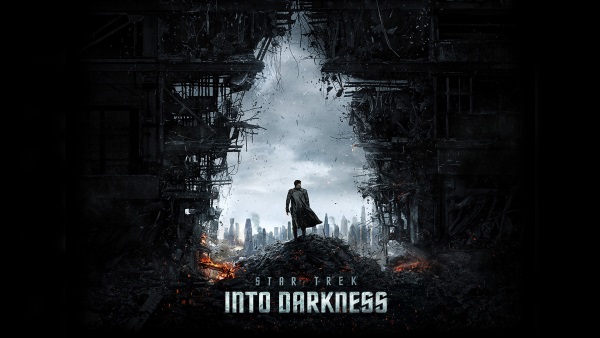When it comes to blockbusters, Hollywood is not in the business of churning out stand-alone films. Singular masterpieces have become the sole province of independent films and Oscar contenders. Big budget crowd pleasers are all about franchising. Just like fast food chains, Hollywood emphasizes products that can be rapidly prepared and mass produced. These confections are designed to be sequelized, prequelized, and rebooted into oblivion. They are meant to live on indefinitely. Like value meals and sugary cereals, they come packaged with trinkets and toys to catch ones fancy. Nutritional value is an afterthought at best. While such meals might not be the healthiest, they are relatively affordable and heavily populate America’s menu of choice. This year, the domestic top ten contained no less than eight sequels and two films that will indeed have sequels. Though voracious, America’s appetite for cinematic junk food is tempered by an indiscriminate palette. In 2011, we couldn’t tell the good from the bad at the box office.
Marvel’s mighty mutants unfortunately succumbed to both franchise and superhero fatigue this time out. X-Men: First Class finished with $146,408,305 in the states, fourteen million dollars less than its production cost. It stands as the lowest grossing X-Men film since the very first one. That’s a damned shame, seeing as how it is easily the best X-flick yet. Audiences rightly felt a bit gun-shy after the insulting debacle known as X-Men Origins: Wolverine.
With audience faith in Professor Xavier’s minions shaken to its core, First Class weathered the brunt of the fallout. 20th Century Fox would do well to remember that quality is key to maintaining customer loyalty. Once fans feel burned, they take their business elsewhere. Let’s hope the same fate does not befall next year’s The Amazing Spider-Man in the wake of the epic blunder known as Spider-Man 3. This is assuming that the former is a better film than its predecessor, of course.
Despite the incessant bitching from critics and fans alike, the third Transformers film was a resounding success. Transformers: Dark of The Moon stands as the 2nd most successful film in the franchise on American shores. Worldwide, it is the most successful, with over 1.1 billion in ticket sales. This makes Michael Bay’s much derided trilogy three for three from a financial standpoint. The allegedly inexcusable quality of Transformers: Revenge of The Fallen registered with the public, but did not prove detrimental to the franchise as a whole.
Visual FX has been the only area where it has unquestionably excelled thus far. Audiences seem to see that as a suitable substitute for likable characters and a functional screenplay. Detractors need not expect future entries in the Cybertronian saga to deviate from Michael Bay’s flawed vision.
 In one of the year’s biggest surprises, Rise of the Planet of the Apes got that franchise firmly back on track. It did so by providing audiences with the best and most unlikely superhero of the summer: a genetically mutated chimp named Caesar. The audience responded enthusiastically, though not as much as the hype would have one believe. The film grossed $176,711,822 at American multiplexes. By comparison, Tim Burton’s execrable 2001 remake of the original Planet of the Apes made 180 million. That gap is even wider when ticket price inflation is taken into account. The disappointment of Burton’s film undoubtedly stunted the franchise’s growth, and perhaps even eroded its fanbase a bit. Rise has halted that erosion and reversed its momentum. Though overstated, that achievement is indeed noteworthy. The Apes now have a new lease on life.
In one of the year’s biggest surprises, Rise of the Planet of the Apes got that franchise firmly back on track. It did so by providing audiences with the best and most unlikely superhero of the summer: a genetically mutated chimp named Caesar. The audience responded enthusiastically, though not as much as the hype would have one believe. The film grossed $176,711,822 at American multiplexes. By comparison, Tim Burton’s execrable 2001 remake of the original Planet of the Apes made 180 million. That gap is even wider when ticket price inflation is taken into account. The disappointment of Burton’s film undoubtedly stunted the franchise’s growth, and perhaps even eroded its fanbase a bit. Rise has halted that erosion and reversed its momentum. Though overstated, that achievement is indeed noteworthy. The Apes now have a new lease on life.
Harry Potter ended on a decidedly firm note, with Harry Potter and the Deathly Hallows Part 2 earning its best domestic numbers ever. Its international numbers matched that feat. Seeing as how there are no more books to adapt, the franchise has likely seen its definite end. Harry Potter’s identity has always been inextricably tied to the books on which it was based. There is no more story to tell. Warner Brothers biggest cash cow of the last decade has earned a much needed, and likely permanent, rest.
Fast Five and Mission Impossible: Ghost Protocol proved to be robust entries for a pair of uneven franchises. The former scored big, while the latter is still running its race. Fast Five came on the heels of the series worst film by far, 2009’s Fast and Furious. Audiences seemingly did not care, as they were happy to see Vin Diesel and Paul Walker in the driver’s seat again. On the Mission Impossible side of things, 2006’s Mission Impossible III was a solid spy flick that had its box office hopes dashed by Tom Cruise backlash. Ghost Protocol enters an arena with no competition. Hopefully, it can restore Tom Cruise’s once bulletproof box office clout.
In much more discouraging news, The Pirates of the Caribbean continues it’s very lucrative and seemingly never ending voyage. Though Pirates of the Caribbean: On Stranger Tides scored the lowest numbers yet for the franchise on American soil, it managed to crack the billion dollar mark worldwide. This renders its domestic performance largely irrelevant. What is most baffling is that the property continues to generate audience interest despite the first film being the only good one. Disney will no doubt require Johnny Depp to reprise the increasingly annoying Jack Sparrow yet one more time. In even more crushing developments, teens continue to flock to The Twilight films as the rest of us look on in disgust and bemusement. The Twilight Saga: Breaking Dawn Part 1 made over 270 million. The most ineffectual vampires and werewolves ever conceived, obviously appeal to a great many people.
What does all of this mean? The box office can be seen as a voting booth, and the films themselves as candidates. If the box office results of 2011 are to be heeded, voters can expect politics as usual in the coming year. In some cases quality was rewarded. In others it was ignored. Likewise, mediocrity elicited equally polarizing results. The voting body is all over the proverbial map. As consumer’s tastes remain inconsistent, so do the products that corporate America provides them with. The ratio of good movies to bad remains the same as ever. As with American politics, things rarely ever change.
Follow Malice Intended on Twitter @ http://twitter.com/renaissance1977
Follow Us on Twitter @ http://twitter.com/planetill
Join Us on the Planet Ill Facebook Group for more discussion
Follow us on Networked Blog






I don’t know about the money deal but X-Men first class was the best X Men film for sure. The action and emotional story made it a winner.